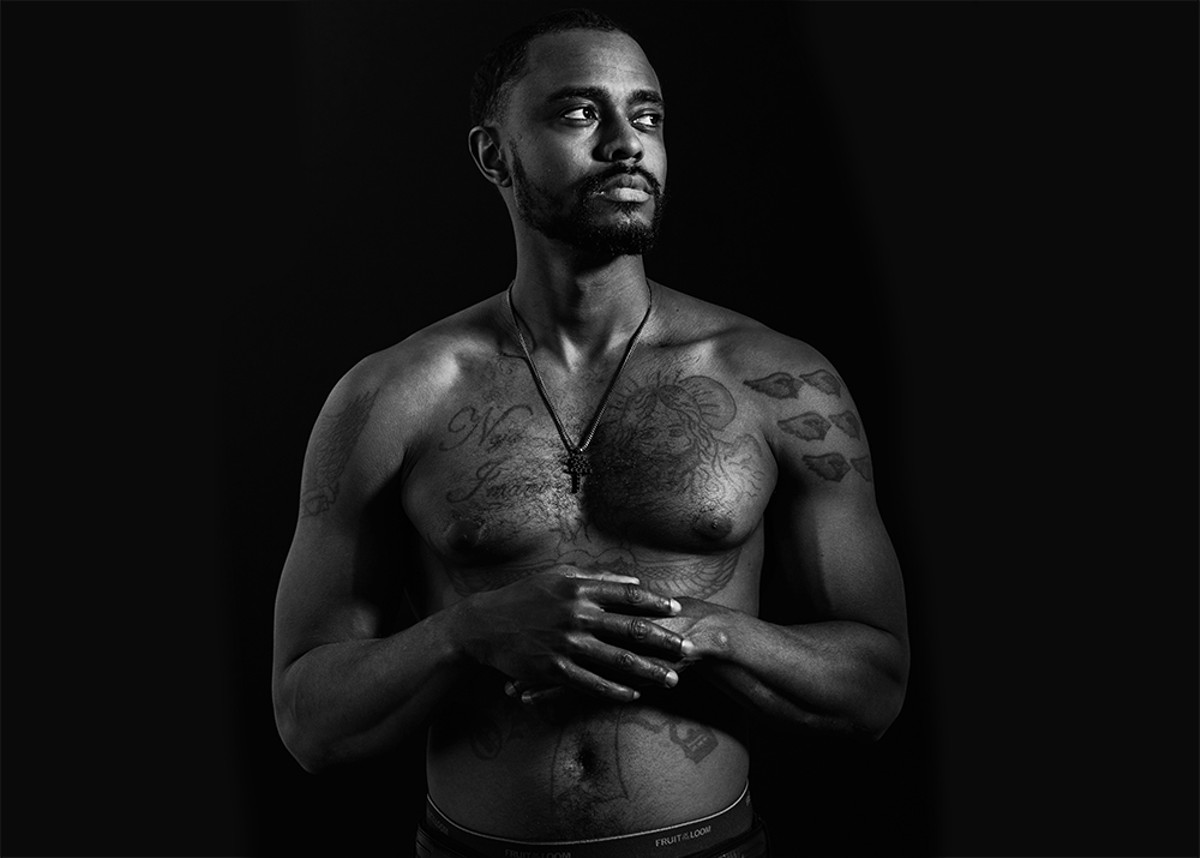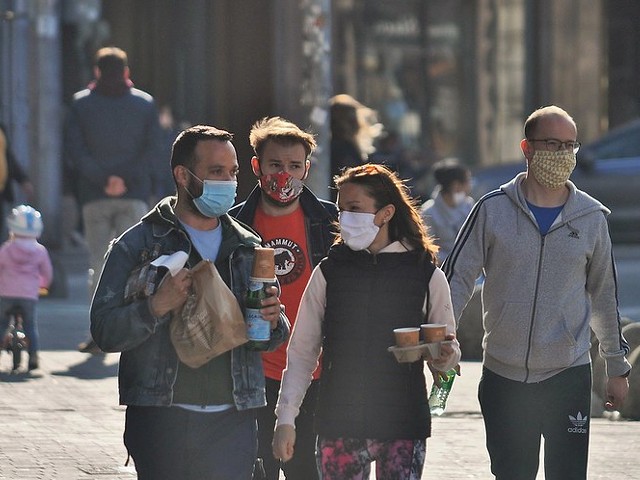From the roof of his downtown apartment building, Olajuwon Davis is surrounded by his past. In front of him curves the Gateway Arch, which was once widely reported to be among his potential bombing targets before his arrest in an FBI sting operation in 2014. To his right looms the dome of the federal courthouse where, several months later, he pleaded guilty to weapons and explosives charges.
More than six years have passed since that hearing, and Davis is out of prison. The former member of the New Black Panther Party and an FBI-cited example of "Black Identity Extremism" has returned to St. Louis — but not as he was before, as a militant, activist or would-be rebel trying to live outside the legal system.
Today, Davis says he only wants to be himself. He'd like to return to what was once a promising acting career, to leave his past behind and to again feel the lights of a camera, the eyes of an audience following him onstage.
But Davis can't escape the events that changed him. In his first post-prison interview, he describes the impact of his unwitting role as a leading man in an FBI sting operation as "a mind-shaking experience."
Davis was arrested on November 21, 2014 — three days before the announcement of a grand jury's decision not to indict Ferguson police officer Darren Wilson in the shooting of Michael Brown. The U.S. Attorney's Office summarized the allegations against Davis in a press release: "Planning and conspiring to ignite explosive devices during the Ferguson protests."
The accusations shocked those who had only known him as a gifted activist and rising young actor. Still, in some ways, he now sees his imprisonment as a blessing.
"It gave me an opportunity to shed a lot of the beliefs that I had taken on," he says. "I was young and on fire — looking for something to empower me, be a part of, identify with. All of that has changed greatly for me. It took for me to be isolated, and for me to go through what I went through, in order to realize that."
Davis' unusual path, from the Ferguson protests to federal prison, was extensively detailed in a Riverfront Times cover story in August 2019. Based on prison interviews with Davis, the story chronicled how he arrived at the growing protest against the police shooting of Michael Brown on August 9, 2014 — and how the sight of the bloodstained pavement shook him to the core, and made him wonder, "Am I next?"
Days later, on August 14, police forces temporarily pulled back from the main area of the demonstrations near a burned QuikTrip in Ferguson. In response, a stretch of West Florissant Avenue became a rolling, protester-controlled parade of blasting music, honking car horns and dancing crowds.
"It was beautiful, incredible," Davis says, reflecting on that day's heady combination of protests and celebration. That same day, the RFT photographed Davis and his fellow Black Panther members peacefully directing traffic. At one point, the black-clad group even acted as a buffer for police officers as they escorted emergency workers to an injured protester who had fallen from a vehicle.
At the time, Davis' life was at a crossroads. He had recently completed acting work for a feature-length independent film, his first major role. But outside the set, he had grown increasingly attached to a web of beliefs that injected conspiracy logic into his worldview. He adopted the quasi-legal language of the "sovereign" citizen movement and identified as an "aboriginal Moor." The beliefs alienated him from his family and supporters.
Soon after, though, he made new friends. At the protests, he connected with two men who quickly became solid members of the New Black Panther Party — a loosely organized Black power movement that borrows the name and look of the original group from the 1960s. The St. Louis chapter contained a handful of active members, including Davis. He had appointed himself the group's "Minister of Justice and Law."
The new recruits were enthusiastic about supporting the struggle. They were also confidential informants working for the FBI.
Davis trusted them completely, and, with their guidance, he would ultimately attempt to purchase what he thought was a pipe bomb — after which Davis was immediately swarmed by federal law enforcement.
"I remember seeing myself on the news when I was in county jail, maybe another day or so after being arrested," Davis says. "They had me on Channel 5 news, that I was going to blow up the Arch."
Davis maintains that he intended to buy the explosives as a middleman and never considered using the pipe bombs to attack a landmark or target a protest. But that's what the post-arrest headlines blared — with the reports citing "unnamed law enforcement sources" with inside information about the foiled attempt at domestic terrorism.
"I remember just feeling so defeated," Davis says now. "It was like, 'Oh, my God, my life is over.'"






